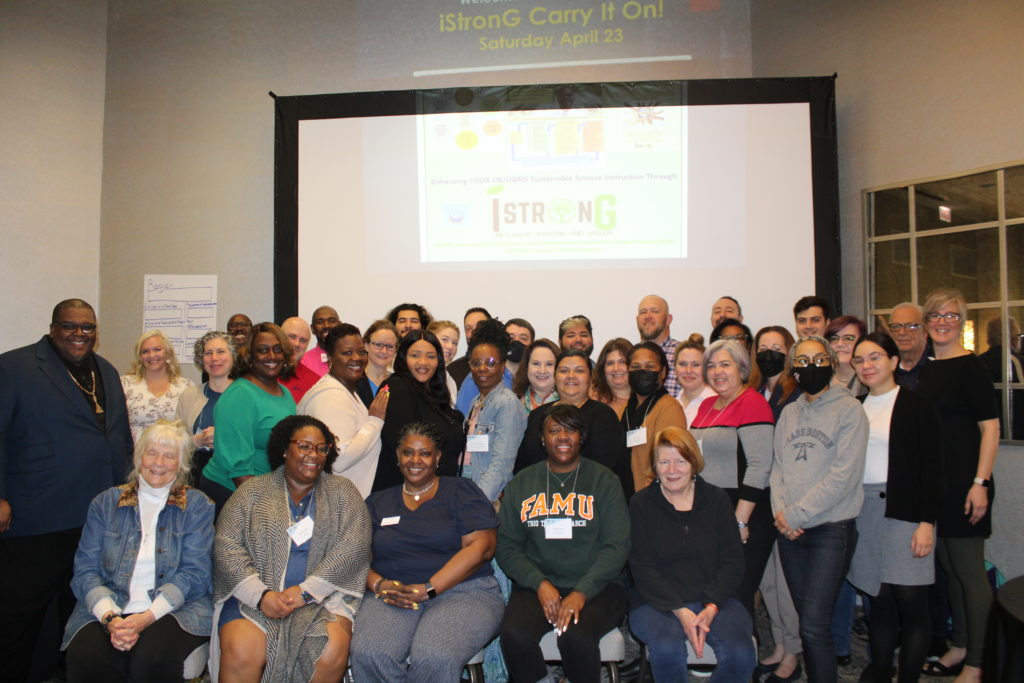COE and the Pell Institute marked Earth Day this year by disseminating an innovative climate-change curriculum to spur students’ interest in the scientific process and encourage their pursuit of related STEM fields.
Meeting with TRIO educators in Chicago last month, Pell Institute staff demonstrated the iStronG (Inclusive, Strong, and Green) curriculum. The iStronG curriculum began in 2018 when the National Science Foundation awarded the Pell Institute a $1.2 million dollar grant to design and pilot an innovative course that features climate solutions-based student projects, systems thinking, systems dynamics modeling, and a community summit. The pre-and post-test student surveys demonstrated that the iStronG curriculum sparked student interest in sustainable STEM majors and careers, increased interest in learning more about climate science, and fostered greater hope that they can make a difference.
COE, the Pell Institute, University of Massachusetts-Lowell, Rutgers University, the Waters Center for Systems Thinking, and Pathlight Associates developed the curriculum over the 2018-19 academic year and worked with five Upward Bound pilot sites to test and revise the curriculum over three summers. The pilot sites were: Family Centered Education Agency in Chicago, the University of Massachusetts- Boston, the University of Kansas, the University of Georgia, and Weatherford College in Texas, which joined in 2021.

Initially, the curriculum was designed for Upward Bound and Upward Bound Math-Science summer programs. However, it can be adapted to other TRIO projects. “We want to provide a curriculum that gives students the opportunity to learn, not just about climate change, but that they themselves can do science,” said Margaret Cahalan, the project’s principal investigator.
The course introduces students to the Stella Architect systems modeling software tool, which can help learners build models that can simulate likely outcomes of various practices over time. Students can use it, Cahalan explained, to show the impact of their proposed interventions to reduce the amount of carbon in the atmosphere. Participants also learn about the carbon cycle, thinking systems, working in teams, and participating in solving the climate crisis.
The curriculum supports co-learning and helps utilize all the talents among participants to work together toward a shared goal. The original pilot site projects are willing to serve as mentors to other interested Upward Bound or Talent Search projects. “The students learn that everyone has different skills that are important to the projects’ overall success,” Cahalan said. She explained that the course is a flexible, living curriculum. For example, at the meeting in Chicago, part of the work centered on adding another unit on climate justice. Representatives from the island nation of Palau, whose future is threatened because of the rising sea level, also participated.
The enthusiasm about the course, and the material itself, helps to dispel the feeling that people are helpless in the face of this global problem. “We need to work on all solutions, as no one solution will work to address climate change,” said Cahalan. “This curriculum allows students to have a sense of agency about this problem.” She said it demonstrates that everyone must be a citizen scientist right now, and everyone has something to contribute. A copy of the curriculum can be accessed here: 2021 Pilot Student Manual. Those interested in implementing the iStronG curriculum should email [email protected].